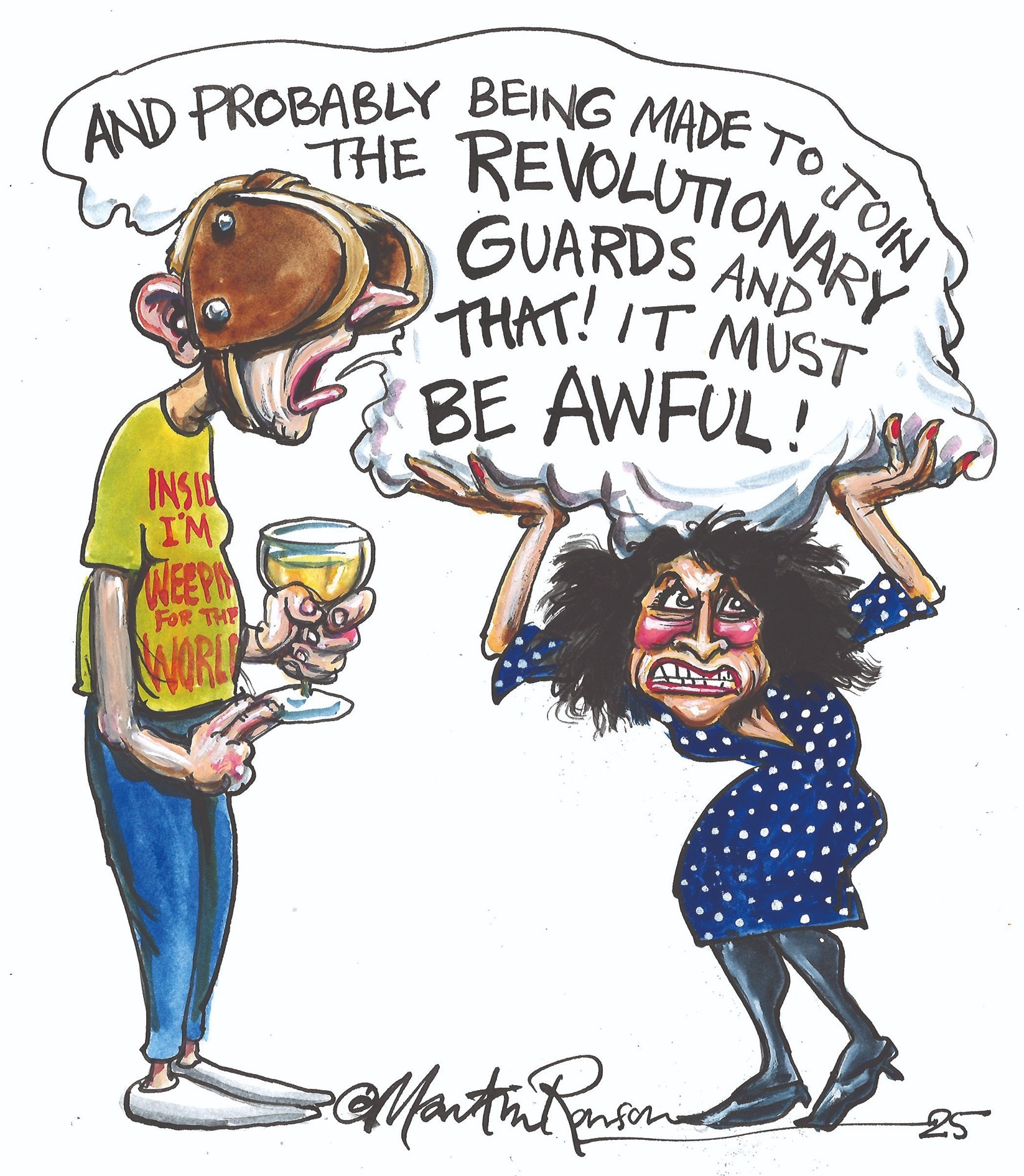What you might be misunderstanding about Iranians

I was sitting one day in the sunshine, waiting for a festival gig to begin, with a bunch of my fellow comedians. The conversation, as it often does with us, had taken a turn for the personal. Small talk is comedian kryptonite – we can’t handle “Going anywhere nice on holiday?” but “What are your kinks?” somehow feels manageable.
That day, the chatter turned to the violence the others had experienced as children at the hands of their parents. “They fuck you up, your mum and dad / They may not mean to, but they do / They fill you with the faults they had / And add some extra, just for you.” So goes the start of Philip Larkin’s famous poem “This Be The Verse”, first published in this very magazine. I have had “stuff ” to process around my upbringing – who hasn’t? If perfect Mary Poppins had actually had children, they would have had major attachment issues. “She would jump into paintings or fly off on an umbrella and we never knew when she’d be back, if at all!” My parents never hit me though, so I just listened to my companions, slightly heartbroken at what they had experienced.
Then someone I’ve known for 20 years turned to me and said, “What about you, Shappi? You must have had it pretty bad.” I was thrown. “Why?” I asked. “Well, you know. Iranian dad and all that.” I was floored. All these years, I had thought my dad was a bohemian poet who had endless parties and who gave his daughter the same abundance of freedom that he gave his son … but all the while he had been a Middle Eastern ogre, one hand gripping a belt, the other clutching a marriage contract, and I hadn’t even noticed.
No one else batted an eye. Not one person said, “Hang on, that’s a weird thing to assume.” I started to wonder – had they all thought that too? But rather than say “and do you get all of your opinions about Middle Eastern men from Tommy Robinson’s Twitter account?” all I managed was “No, my dad never hit me. In fact, he wants to learn to tap dance!” as though child beaters can’t also move their feet.
My father is not a violent man. His only weapons are his words, and they are generally aimed at despots and dictators. Some people seem to watch five minutes of news coverage about Iran and conclude that the entire population is plotting beheadings over bad exam results. Personally, I have never watched a Jackie Chan movie and assumed that every Chinese dad kept nunchucks by the kettle. But apparently people I considered progressive did think like this.
Even more recently, at a party, I was chatting to a woman about therapy and how I’d had to learn to be angry safely. I meant that I’d previously been more prone to crying or throwing an orange at the wall, rather than staying emotionally regulated and articulating my feelings. She nodded and said, “That would be a cultural thing.” A cultural thing? What did she mean? Then I remembered that I was brown; that I must come from a culture where children were taught to obey, in a quiet, disciplined family. In reality, I’d come home from school to my five-foot-two dad with his wild mop of curly hair, waving a wooden spoon in the air and yelling, “Come, come! I made muffins!”
Iran gets painted in monochrome by people whose curiosity doesn’t reach beyond the news of war, revolution, oil and oppression. They don’t know its rich history and wildly diverse peoples. But being from a country that’s constantly misrepresented has given me a lifelong radar for nuance. I know that behind every grim headline, there are poets scribbling in cafés, kids giggling in schoolyards, and grandmothers cracking bawdy jokes.
So when someone from the west tells me – even with the best intentions – what my culture must be like, I don’t just hear ignorance. I hear a kind of poverty, a lack of exposure. A world view robbed by prejudice. There is no culture, no country – developed or developing – that has the monopoly on joy, cruelty, laughter, trauma, brilliance or bullshit. People are the same wherever you go. Someone should write a song about that.
This is a preview from New Humanist’s Autumn 2025 issue. Subscribe now.

